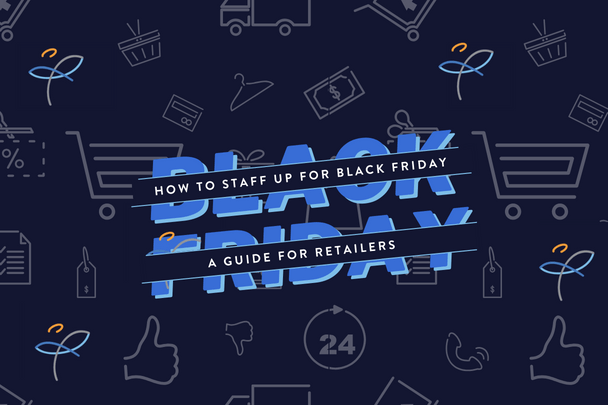Origin of Black Friday
“Black Friday” wasn’t always about heavily discounted TVs, extended store hours, or 2 a.m. shopping trips. Business Insider reports that the term Black Friday was initially associated with the stock market crash of 1869. However, it was later redefined in the 1950s in Philadelphia to refer to the day between Thanksgiving and the Army-Navy football game when large crowds of tourists and shoppers overtook the city. In the 1980s, retailers reinvented the term again to reflect that they turned a profit on that day. This is reflected in accounting terms, where positive earnings are represented by black ink. Thus, Black Friday as we know it today began. Today, it is the most popular day for in-store shopping, with 77 million consumers heading to stores on that day, according to the National Retail Federation.
Black Friday Today
Black Friday is undoubtedly one of the nation’s most well-known and frenzied shopping days of the year. Retailers often generate excitement with massive sales and discounts, prompting customers to line up for hours and arrive at stores before opening. However, the biggest challenge for retailers during this frenzy is to have sufficient staff to handle the occasion. Having enough staff members working on Black Friday to help customers, in the POS system to process transactions, and at the back of the house to replenish products can determine the profits retailers see from Black Friday.
Consider Seasonal Hiring
Seasonal hiring is an excellent option for managing the holiday rush without the need for onboarding full-time associates. This approach provides extra support in-store while saving time and money that would have been spent on official onboarding and other overhead.
How Much Seasonal Hiring is Needed?
To determine the number of seasonal hiring your store needs, it is important to analyze past data and sales figures. This will help in identifying the busiest times and areas in the store, allowing for the creation of an effective staffing plan. By looking at previous sales data, retailers can find missed sales opportunities caused by insufficient seasonal hiring and plan accordingly. Ultimately, the goal is for those working on Black Friday to function as a well-oiled machine with enough staff to maximize sales performance.
Train Staff
When considering seasonal hiring for your big sale event, have temporary workers come in a few days beforehand to familiarize themselves with the store layout and products and meet the permanent staff they will be working with. Building good relationships among the staff is essential for a successful event. Retailers should also provide training on the point-of-sale system, product knowledge, and back-of-house operations to ensure that everything runs smoothly on the big day.
Strike a balance between providing enough information and giving specific details about what they need to do when training staff. For example, if their role is to help with crowd control, let them know they should welcome guests upon arrival and pair them with an associate. If they will be stationed at the point of sale, walk them through each step of the checkout process carefully and clearly. Don’t forget to go over the schedule with staff. Outline the timing of breaks and lunches and the specific zones where staff should be stationed throughout the day.
Don’t Get Caught Understaffed
Consider the importance of having extra staff on hand for emergencies. Being overstaffed is a good problem to have because when a store is understaffed, things can get dicey. Having additional staff working on Black Friday can help manage unexpected situations. Managers can always reallocate extra staff wherever needed – back of house, cleaning inventory up, putting product out on the sales floor, or making sure the cash wrap is stocked with all the necessary supplies throughout the day.
Pre and Post-Black Friday
When retailers plan for temporary help, they should also consider their needs leading up to and after working on Black Friday. Temporary assistance with tasks such as inventory, customer service, marketing support, and brand positioning can help them prepare for any high-sales volume fluctuations throughout the year. Similar to temporary help working on Black Friday, this form of project, high-volume, or seasonal hiring can reduce overhead costs by minimizing onboarding and benefit expenses. This, in turn, allows for cost-effective scaling while maximizing productivity.
Make or Break
Black Friday can be a make-or-break event for many retailers. Because of this, it’s essential to have sufficient staffing in place to ensure a smooth and successful shopping experience for customers. Failing to adequately staff up leads to long lines, frustrated customers, and lost sales opportunities. Therefore, retailers should prioritize staffing for Black Friday and ensure they have the necessary resources to handle the holiday rush.
Atrium has been in the staffing business for nearly 30 years and understands the nature of retail staffing requirements. From sales associates on the floor to support staff who manage inventory and keep the store clean and organized, we can supply the team you need to succeed. Contact us today to learn how we can help you prepare for the Q4 shopping season.










